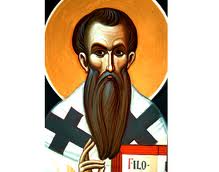 Let King Jesus Reign! Comment by David Lee, a Christian celibate and electrical engineer living in Flore, Northamptonshire. Who are we really accountable to and who are we wanting to please?
Let King Jesus Reign! Comment by David Lee, a Christian celibate and electrical engineer living in Flore, Northamptonshire. Who are we really accountable to and who are we wanting to please?
The Church of England appears to be having some difficulty agreeing qualifications for bishops. I am an outside observer, so it does not affect me directly, but what has interested me is the arguments that are being used. Internally, the Church of England has produced theological and scholarly documents (see http://www.churchofengland.org/our-views/women-bishops.aspx for an outline) but what has been reported by the press has more often been on how such things are seen by those outside the church ( http://www.bbc.co.uk/news/uk-politics-20443718 for example). I want to ask to whom the church should be accountable?
Although accepting that there is some truth in the church existing for those outside of her, my vision of her is as the Bride of Christ, called by her Lord out of the fallen, corrupt world, made of those who have washed their robes spotless in His blood, and adoring her Lord. What we have in day to day life here on this earth is clearly less than that, but I want to live for eternal things, not the temporary passing fashions of this world. That I see as being one of the sustaining things for my celibate calling.
It is true that in this valley of tears we have many uncertainties as to how best to follow our Lord, how best to be His body, displaying His life here, and I admit it is in that area that the debate on women bishops is active. Acceptance of celibate gays is not contradictory to the injunction to abstain from sexual immorality in the New Testament. Indeed, with western society having an infidelity rate amongst heterosexuals of over twice the rate of homosexuality then infidelity, being directly against that scripture, should, for us, be a higher priority issue than gay behaviour. Dare we suppose that statistics for Christians would be much better than for the society in which we live? Who has not known sexual temptation? – For me, I know how easily I could fall (see 1 Cor 10v12) so have no desire to be harsh on any who have fallen.
Let us not lose sight of our call as a church, to be the Kingdom of God, the place where God rules, and His will is the highest aim. I have long esteemed the cry of the Scottish Covenanters of 1685, “Let King Jesus Reign”, in response to the state seeking to control their church. They knew, and did not fear to pay the cost of that declaration then. Nowadays, the cost is more likely to be character assassination, a small price compared to denying our King.





 Jesus Army
Jesus Army Community
Community Real and Wild
Real and Wild